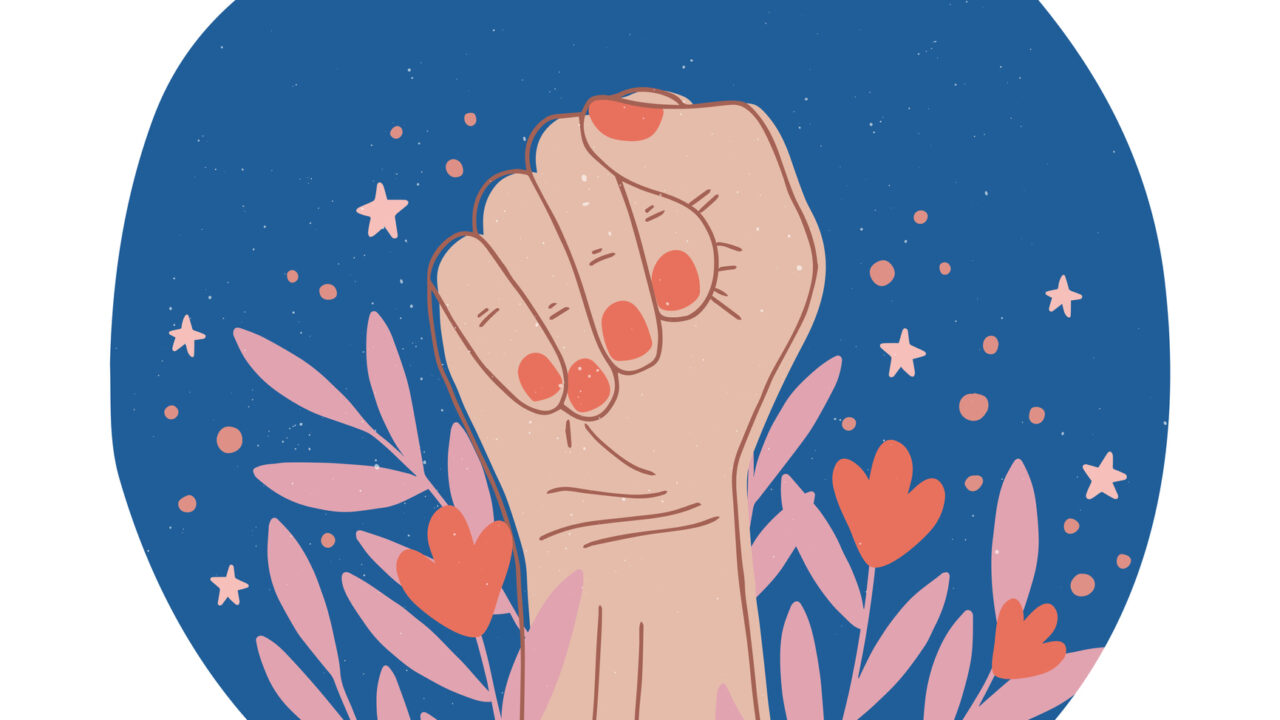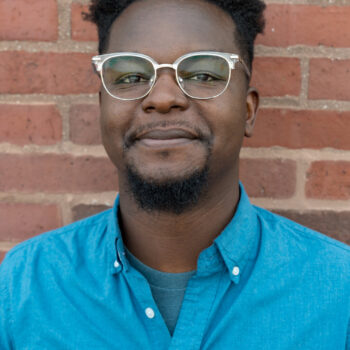The following are edited excerpts from remarks shared by Maurice BP-Weeks, founder of The Action Center on Race and the Economy, and Solana Rice, a founder of Liberation in a Generation, during the Abolitionist Network Gathering on the relationship of our economy and abolition.
They discuss the need to disrupt and dismantle capitalism and the carceral state to achieve true liberation and outline some strategies for building a Liberation Economy, including guaranteed housing, healthcare, and income, while acknowledging the challenges and complexities involved in this transformation.
Maurice:
Yes, capitalism is very, very bad, and some of us resonate with other political traditions, whether that be socialism, or Marxism, or communism, or others that are inherently less violent and insidious than capitalism naturally is. Some of us might not find a perfect and comfy home in any of those traditions, but still know deeply in our bones that global capitalism, American capitalism, racial capitalism is bad. You may know this from watching how housing is accessed in your neighborhood and seeing some people with their nice big comfy house while other people can’t afford a house and have to live on the street or have to live between shelters, forcing them to be harassed by the cops.
You might know this in your bones from watching wealthy people hoard vaccines and making rules about who can move around the world under the guise of healthcare and protecting themselves, while millions of other people die and are kept from their families. You might know this from an early age like I did, watching some people who have never had to do a single day of paid labor in their life just sit on money that literally their families made in slavery while others in your family work three or four or five jobs to be able to feed the family, to put food on the table.
All of these things are deep knowings. I would certainly recommend reading about those other political traditions, but you don’t have to. You can be anti-capitalist and just know that in your bones from feeling all of those things.
Capitalism is a broad economic and political system, and that means that there are economic functions. Those are the things that capitalists themselves like to refer to the most often. “How much money you have is determined by how much value you create at your job.” Profit and growth are the things that are referenced over literally anything else.
You know that there are winners and losers, and it’s up to the winners whether the losers are allowed to live or die and they call that charity. If the winners decide to give you some money so that you don’t die, they’re such great people and they’re charitable and that’s how the system works. As a political system, capitalism creates structures and organizations, and governance procedures that lock into place this notion of winners and losers. I just want to say, it can’t be overstated how much global anti-Black racism, and specifically, the North American slave trade is responsible for what both the political and economic systems of capitalism look like today. There need to be winners and losers for capitalism to function properly. Those folks who are Black, who are Indigenous, who are women, who are non-binary, who are queer, who are the furthest away from white men – which is who the system was designed for – are the ones who are set as the losers the most often, and that’s enforced by the state.
They can be further physically and violently enforced through specific varied arms of the prison industrial complex, but it’s enforced in other ways by the state too. People often note policing was historically a way for slave owners to enforce enslavement of Black people or to enforce the genocide of Indigenous people. Both of those things were obviously deeply racist to their core, but also about increasing wealth and power for a small number of people at the expense of a few. This is where capitalism comes from. This is where American capitalism is born from. For me, this is where specifically anti-capitalist organizing – your funder might call it economic justice organizing or it might be called something else – comes into play. Without the real destruction of capitalism and its functions, we still have this beast that will continue to keep folks down.
I came up as a housing organizer. For those who might not be familiar with the process of evictions, evictions in this country are usually done by a sheriff or a police officer at gunpoint. I have been in someone’s house while they were being evicted while doing housing organizing, and there was a shotgun and a sheriff that came to do it. If I was able to snap away every single sheriff, every single police officer, every single shotgun, in a click, we still have someone coming to kick a person out of their home and put them in a position in which they are not comfortable, are not safe at all.
That wouldn’t be a destruction of a system, that would just be a morph. We need to do things that are able to disrupt the full thing that is leading this arm of the prison-industrial complex to violently kick someone out. We don’t want just to substitute and have an unarmed rent-a-cop kick someone out of their house. We don’t want to kick anyone out of their house. Like the Critical Resistance homies said, there’s nothing inherently abolitionist or not abolitionist about any particular strategy that we’re talking about here. You can be building up worker power to topple a worker-boss dynamic that’s extracting wealth from Black people, and that can be abolitionist work.
Upsetting the realities of a system that makes poor people and Black people tired and makes them vulnerable can be abolitionist work. Fighting to guarantee free housing for people can be abolitionist work. I would say that we need those types of work for abolitionist organizing to be successful.
There are ways to do economic justice work that can actually reinforce the power of capitalism and the carceral state. I have done many of them, I admit that. I know there are many people who have done those in our movement. I’ve done organizing to help Black people keep homes that they own from being taken from the banks. I fought super hard for that work. I deeply loved the Black people whose homes I was fighting to save. I deeply, deeply still believe that what was happening to them at that particular time was incredibly unjust and unfair, and they shouldn’t have been kicked out of their homes. I also know that home ownership is an exclusive economic practice of capitalism that leads to exclusion of certain people and criminalization of certain people. Instead of fighting for more Black people to have homes, which is a popular plank of the Democratic party, for instance, you can shift to fighting for a homes guarantee where all people have homes and no one’s reliant on a system that makes a ton of wealth for a small group of people. Not just fighting for them not to be at the other end of a sheriff’s gun one day, but also not to have them ever be stressed out literally to death that they won’t have a place to stay for themselves and their family.
Abolitionist and anti-capitalist organizing work is throwing wrenches into the function of some of the core capitalist systems in the same way that we all are super comfortable throwing wrenches into the function of how prisons work and how policing works. If we just focus on message tweaks and reforms, it causes the system to just morph. I don’t know about y’all, but I don’t want my grandchildren to be just subservient to rich white people in a slightly different way than I am now. I want them to be totally free. We have to attack both systems. My challenge to folks as we go into the remainder of the day – we have some skillshares, we have some cross-movement conversations happening – is to really deeply envision how we can expand some of the abolitionist work that we’re doing to the work that dismantles the insidious economic system that we are in.
What work to dismantle the economic system that we’re in is, and is not, abolitionist? What work are we doing around destroying the police-industrial complex that is, or is not, anti-capitalist? I would challenge you to keep those two things in the back of your mind and the front of your mind actually as we go into the rest of the conversations today. I was asked to talk about anti-capitalism in 15 minutes, which is absolutely fucking impossible for me. That was my attempt.
Solana Rice:
Dismantling oppression in this economy is meeting our people where they are today. Liberation is a present practice, the practice we do every day, in the present moment that makes a new road for our people tomorrow. The last thing I’ll share is what I’m sitting with and am questioning and look forward to staying in conversation with you all: “No liberation in the beast that is racial capitalism.”
We know that what we want is not possible in the way that this economy currently works. Our economy is how we take care of each other, how we distribute the resources and wealth of this nation. We also must recognize that the beast is real, but it’s fragile and it’s cracking, and the tools that have built that beast and keep rebuilding the beast are theft, extraction, exclusion, and exploitation.
Our economy, currently, is based on our labor, the land we cultivate, the capital we build. Our labor, whether it be wage labor, the care that we give to others, even our reproductive labor. We’d be remiss to overlook the ways that Black women and our bodies have created the reproductive labor that was really the foundation of our economy at the beginning of this nation, the land that we cultivate that was stolen from Indigenous peoples provides food, provides shelter, provides sustenance, and even capitalism itself is built on capital, right?
Whether it’s social capital and relational capital that has been used to divide us, or money, the beast is maintained, it’s fed by, it’s cultivated by surveillance, policing, and punishment. These are all things we know.
At Liberation in a Generation, we are informed by many frameworks–just transition, living economy, solidarity economy, solidarity economics, sharing economy frames. The list goes on. We think about this current economy that we live in as an Oppression Economy. This is an Oppression Economy that we have to dismantle. We talk about oppression because– I think there was a question in the chat earlier about gender-based oppression, right? That’s included in how this economy works. Racial, gender-based, sexuality-based, citizenship-based. We have found a lot of ways to oppress people and to exclude people.
How does it show up for us? Criminalization. It shows up in our dual financial system. We have a tax system that gives wealth to wealthy people, mostly white men, and how the money flows in our economy, it flows away from our communities.This financial system also creates proxies for relationships like credit systems, right? We don’t need those when we trust one another, when we know one another, when we actually have relationships.
The Oppression Economy also provides undue power to corporations, to private prisons, to investments in prisons. Of course, corporations are also supporting the elections of policymakers that are thwarting our liberation and I’m sure you see this in the campaigns, the struggles that you all are seeing in your communities every day.
Lastly, this Oppression Economy creates political disenfranchisement. We don’t get the say that we deserve in how these systems are built, who governs, who decides. If the beast is cracking, what we are doing each day through principled struggle, through strategic allyship, through organizing, through advocacy, all of those things, all of those practices are cultivating the blooms through those cracks, and those blooms are shaping into new structures and they are providing material resources to our historically exploited and marginalized people, our Black, Indigenous people, our Latinx, Asian, Pacific Islander people.
What does a Liberation Economy look like? For us at LibGen it is that all of us have our basic needs met. We have clean air, we have clean water, we have food. All of us have our basic needs. We have well-being. I’m trying that on, instead of “safety.” We have our well-being met, and we are secure.
We have housing, we have healthcare. We can take confidence that our future is being held as well so our littles won’t have to suffer with climate devastation. All of us are valued and compensated. In this next iteration of an economy, we deserve the ability to weather hardships, we are compensated for our contributions to our communities, and that all of us have power. We are deserving, we belong. We have power over our lives, over our economies, over our communities.
So how? What are the tools that we are using? What are the tools that we are sharpening through abolitionist practices, through our abolitionist organizing? We’re leading with abundance. There’s enough to go around. It goes around to all marginalized people. Housing, care, a livable environment, we have enough. That we are deserving, that we have dignity.
We deserve work, rest, play that sustains us and our communities, and we engage with each other on fair terms that we all have a say in setting. We also believe that we deserve to cement our financial and physical well-being, safety, and security. The resources to deal with inevitable struggle and strife are available to all people. Lastly, possessing power, right? Power is evenly distributed among us. Black and Brown people have a place and power over our own lives, our economies, our communities.
How do we maintain and cultivate those new blossoms? If abundance and deservedness and well-being and power are our tools, you can think about these shoots and these blooms, and some of the sunflowers are big and some of them are starting, but, what are the ways that we are cultivating and maintaining? What’s that compost? What’s that dirty earth that we’re adding? It’s the relationships rooted in honesty and accountability. It’s the skills and the structures, right?
There’s something possible within our lifetime. It’s possible for us to change our relationship to our resources. Not hoarding, not surviving, not winners and losers. The way that we’re trying it on and look forward to walking with you all in this exploration is a set of guarantees. What happens if we all had housing? And not just like false solutions that depend on individual debt financing like increasing Black home ownership – this is not a real pathway to us all having a place to live. We are exploring guaranteed healthcare, guaranteed income, guaranteed debt-free college, and guaranteed employment. If you want a job, you can get a job. We’re not going to classify workers out of benefits, we’re not going to undercompensate people, we’re not going to surveil workers’ building power. Care, universal care. What would it look like to provide material support for family care, those with disabilities, those with young ones, elders?
We’re asking ourselves and our movement friends, “Do these even work? Should we even be thinking about these? How are these part of an abolitionist struggle? Do these open possibilities or create something else that we’ll have to dismantle?”
How do we do these without profit maximization and without shareholders deciding all of what corporations can do? How do we do this without extraction from people and land, without corporations governing our decisions? What would we need to have in place to trust the public provision of these? If these were provided by the state, can we trust the state? Not right now, not today, so, what would we need to have in place? What tools, beliefs are we using to create these transformations?
Lastly, I’ll just wrap with some takeaways. We are together to accelerate the dismantling of these fragile systems that keep our bodies, our hearts, and our minds in cages. We are together here to use our many tools and cultivations and practices to build relationships, skills, and structures. That there are many forms of the state, there are many tentacles of the state. Where and when are we sharpening our strategies locally, across states, and nationally, and internationally? The other three that I’m taking away are alliterations because I love things that start with the same letter for some reason. Slowing, staying in connection and sitting in discomfort.
How do we slow to take the time to reflect and document? How do we slow down to build relationships? How do we slow down to restore ourselves and community? The next is staying in connection. How are our struggles across the corners of our earth connected? What do you need to support connection-making today? Lastly, as Critical Resistance shared “if we’re not in discomfort, we’re not really in coalition” and “we’re not in coalition if we’re not really in discomfort.” Slow, stay connected, sit in discomfort while dismantling the Oppression Economy and building a Liberation Economy.


